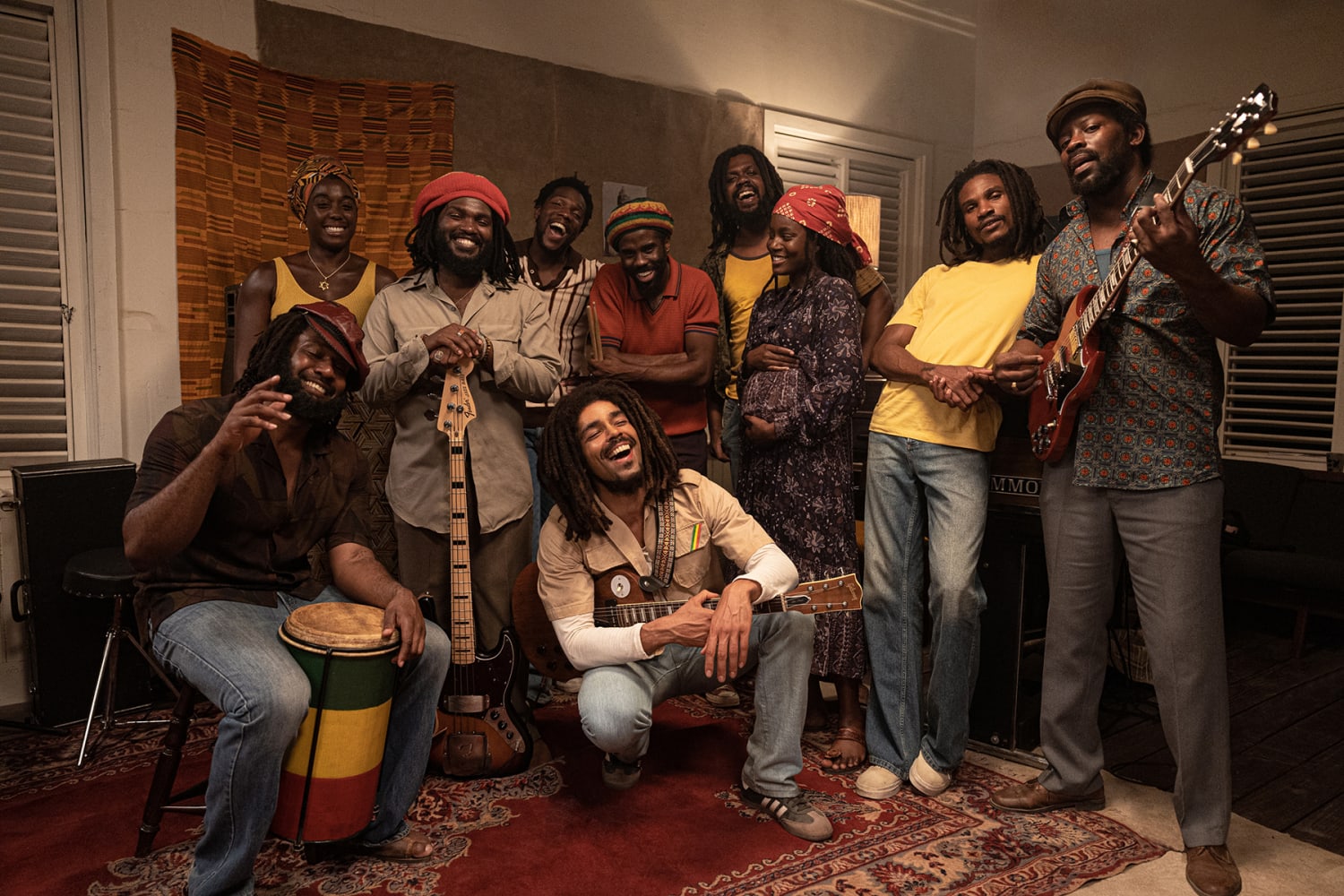Biopics often put the spotlight on larger-than-life icons. But for Kingsley Ben-Adir, the British actor who plays Jamaican reggae star Bob Marley in a new movie out Wednesday, telling a sweeping story about a legend was something that he — and Marley’s family — wanted “to turn the volume down on.”
“We were trying to find a bit of Bob’s spirit as a human being,” he said in a video interview with NBC News. “That was my instruction from the family and the intention of the movie that’s produced by them.”
Kingsley explained that beyond the legend that captured the imagination of Marley’s fellow Jamaicans — and fans all over the world — they wanted viewers to connect on a deeper human level.
“There’s something about his lifelong journey to spread peace, or find peace for himself, that I feel is very, very universal,” he said. “We’re all on our own journeys trying to feel connected to something.”Kingsley said Marley was able to transmit this profound yearning for a higher sense of connection through the “feeling of his music.”
“Bob Marley: One Love” hits movie theaters nationwide one week after what would have been the reggae star’s 79th birthday. Marley died in 1981, just 36 years old, from a melanoma on his big toenail.
The title of the biopic comes from the hit song “One Love,” which was released on the 1965 debut album by Marley’s original group, The Wailers.
The chorus of “One love. One heart. Let’s get together and feel all right” carries a greater message of unity that director Reinaldo Marcus Green — and Marley’s family — presents in the film, set amid violent political unrest in Jamaica in 1976.
“We wanted to establish the stakes right away. There were two rival parties,” Green said in a video interview. At the time, Jamaica had been splintered by the People’s National Party and the Jamaica Labour Party, with the tensions leading to intense violence in the run-up to an election. “And Bob was at the center of this.”
The movie begins as the reggae star tries to unify all Jamaicans with a free concert called Smile Jamaica. Shortly before the event, Marley and his wife, Rita (played by Lashana Lynch), are shot.
“Somebody didn’t want him to do that. Somebody wanted him to choose sides,” Green said.
The couple survive the assassination attempt and exile themselves soon after. Rita Marley goes to Delaware with their children. And Bob Marley moves to London, where he ultimately records one of his most emblematic albums.
“He doubles down. He creates ‘Exodus,’” Green said. “Most people would go into hiding forever and never come out.”
Rolling Stone recently ranked “Exodus” No. 48 in “The 500 Greatest Albums of All Time.”
Green said Marley’s music has the power to transcend many boundaries. And he credited his father with introducing Marley to his childhood home in Staten Island, New York.
“My dad always had Bob around and the music on,” he said. “He named me Reinaldo Marcus Green after Marcus Garvey. Marcus Garvey is whom Bob studied about the liberation of Black people and going back to Africa. So, it was something that was always around in my household.”
Looking back on Bob Marley’s legacy, his son Ziggy Marley said his father would have wanted to deliver one key message today.
“My father would want humanity to be in a better place than where we are in terms of how we coexist with each other. Less divisiveness. Less political friction,” he said in a video interview.
Unity, Ziggy Marley said, was both the cornerstone of Bob Marley’s music and what drove the movie forward, decades after the reggae star’s death.
“That’s why this movie really come now to put more light on that message in the world,” he said, “’cause there are not a lot of things that’s pushing that idea of unification.”

